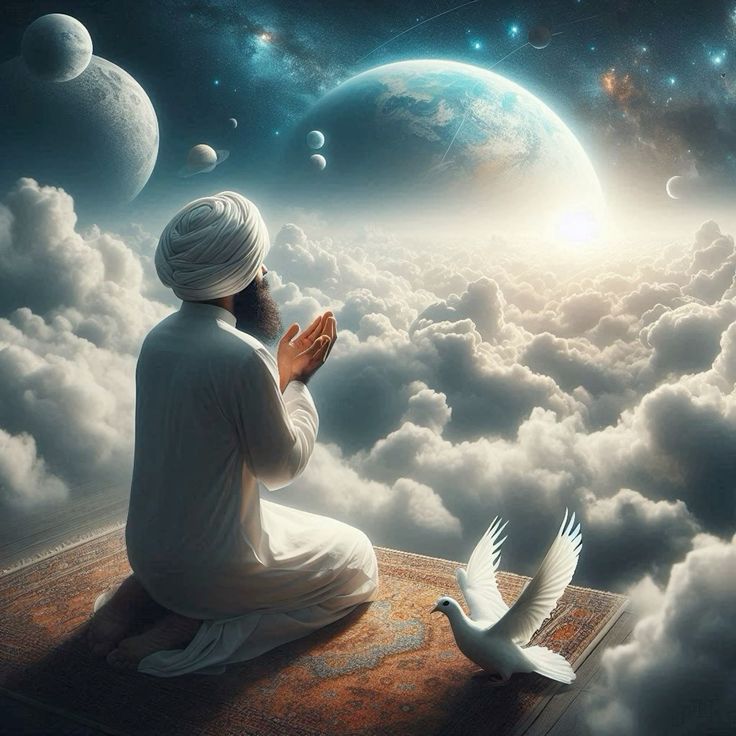This is the antithesis of lies, backbiting, and gossip. Fasting is for Me and I reward it myself: ramadan and its manners. Irshad Rabbani.
Sunday, March 2, 2025
Allah Almighty says in the Holy Quran.
O you who believe! Fasting is prescribed for you. This is to make you pious. Ramadan is the month in which the Quran was revealed.

This month is the epitome of guidance. It contains things that distinguish between right and wrong. Everyone who is present in this month should fast.
It is narrated from Hazrat Salman Farsi (may Allah be pleased with him) that the Messenger of Allah (peace and blessings of Allah be upon him) delivered a sermon to us. He (peace and blessings of Allah be upon him) said: A great month is coming on the last day of the month of Sha’ban.
One night of this blessed month (Laylatul Qadr) is better than a thousand months.
In this month, Allah Almighty has prescribed fasting. At night, praying Taraweeh is a great reward.
If someone breaks his fast by performing a non-obligatory act of worship, his sins will be forgiven. He will be saved from Hell. The reward of the fasting person will not be reduced for that.
The Prophet (peace and blessings of Allah be upon him) was asked: O Messenger of Allah (peace and blessings of Allah be upon him)! Not all of us can afford to break our fast. So what about the strangers?
The Prophet (peace and blessings of Allah be upon him) replied: Allah will reward even the person who breaks his fast with a little milk or a sip of water.

Allah will give that person a drink from My fountain (i.e. Kauthar). After that, he will never feel thirsty. He will reach Paradise.
The Prophet (peace and blessings of Allah be upon him) said: “Whoever reduces the work of his slave or servant in Ramadan, Allah will forgive him and he will be freed from Hell.” There are three ten days of Ramadan.
last ten days its very importrant forgive our mistakes
Its first ten days are of mercy, the middle ten days are of forgiveness, and the last ten days are a document of deliverance from punishment.
Hazrat Abu Hurairah (RA) narrated that the Holy Prophet (PBUH) said: “Whoever fasts Ramadan out of faith and in the hope of Allah’s forgiveness, his past sins will be forgiven.
Whoever performs acts of worship during Ramadan out of faith and in the hope of Allah’s forgivenesshttps://www.livemint.com/news/india/ramadan-2025-fasting-begins-today-20-wishes-messages-gifs-and-images-to-share-with-friends-family-this-ramzan-month-11740875818888.html, his past sins will be forgiven.
Whoever performs acts of worship during the Night of Decree out of faith and in the hope of Allah’s forgiveness, his past sins will be forgiven.
Fasting is an act of worship that the Holy Prophet (PBUH) has commanded. Allah Almighty says that fasting is for Me. I will reward it.
This act of worship is between Allah and His servant.
The servant refrains from eating and drinking and from his desires throughout the day.
He takes care of observing these manners. He tries to spend his days and nights in accordance with them. Allah Almighty rewards him.

In a hadith, it is said: “Fasting is a shield for a person. It is said that when he said this, it was said: It can be torn with someone. He said: With a lie or backbiting.
That is, lying, backbiting, backbiting, fighting, quarreling and other such bad things are strictly prohibited while fasting.
It is written in the blessed hadith: Whoever says or acts upon something bad while fasting, Allah will not leave him hungry or thirsty. If a fasting person does not stop committing immorality, fighting, quarreling, backbiting, obscene speech or other such things after fasting, then his fasting is not fasting but fasting.
This fasting has nothing to do with the commands of Allah.
Another blessed hadith states that fasting is not just about abstaining from food and drink. Rather, it is about abstaining from vulgarity and bad speech.
It is narrated from Hazrat Abdullah bin Masood (RA) that whoever does not abstain from forbidden acts, there is no need for him to abstain from eating or drinking for my sake. Just as the tongue must be protected from obscenity, backbiting and lying, similarly the other parts of a person, the eyes, ears, nose, hands and feet, must also be protected from bad actions.
Hazrat Abdullah bin Abbas (RA) has narrated a noble hadith. His words are: “When the month of Ramadan came, the Messenger of Allah (PBUH) would release prisoners and fulfill the request of every beggar.”
Conclusion
There are many blessings in Ramadan. Muslims have been advised to have good attitudes. The Holy Prophet (PBUH) has drawn attention to good deeds.
The Messenger of Allah (PBUH) used to be very generous and generous during Ramadan.
There are eases at every opportunity in Islam. The Holy Quran says: “Allah desires ease for you.”
A traveler or a sick person is excused from fasting. They can make up the missed fasts later.
If a person is unable to fast due to age or illness, there is a ransom for him.
In another blessed hadith, the Messenger of Allah (peace and blessings of Allah be upon him) has declared Ramadan a month of patience and forbearance. Patience means suppressing one’s desires for the sake of Allah. It means enduring hardships and discomforts.
This also creates a sense of compassion for the poor and needy who are forced to starve due to poverty. May Allah grant us the ability to follow the teachings of the Quran and the Sunnah of the Prophet (peace and blessings of Allah be upon him). Ameen….

